When you think music ‘theory’ a lot of you out there probably start thinking about stuff like Scales or maybe Chord Tones or maybe even the whole study of Functional Harmony.
Well, that’s all useful and important stuff to learn but there’s a very small area of ‘theory’ bass players often neglect and it’s something that serves a foundation in learning all of that other stuff and is a basis for pretty much everything we do in music.
I’m talking about Intervals. Learn your intervals and everything, and I mean everything, will start to make a lot more sense!
What Are Intervals?
Intervals are simply a measurement of musical distance. When we measure physical distance we use units of measurement like feet, inches, miles or kilometres . Imagine we didn’t have these units of measurement and then imagine having to describe the distance of a table from the wall or your home to the local school or the Earth to the Sun. Communication gets a little messed up.
Intervals provide a metric by which we can measure the distance from one pitch to another.
What’s So Great About Intervals?
First of all if we know the intervals on the neck that’s great for communication. If someone says “This riff is on a C and you just play a major third before moving to the fourth” That’s great. We can play that. And we don’t have to just play it in once way. Because it’s a musical measurement, independent of any instrument, we can play it wherever we want.
Secondly, we can move keys really easily because we now have a measurement independent of the key. A major third is a major third whatever key we’re in. So if we want to move that major third into G major instead of C, we can just shift the major third ‘pattern’. Easy. By learning your intervals and then seeing everything you play as intervals you can easily move things around from key to key.
Thirdly and most importantly , intervals have emotive quality. Every interval has a very distinctive sound and feel. We hear a quality in there. Something we can recognise aurally and musically. If we know the sound of an interval it means we gain a much more intimate connection to music and playing in general.
Basic Intervals
In this lesson I’m just going to work through the most basic set of intervals we derive from the major scale. It’s important to nail those ones first and get them under your fingers and firmly into your brain before adding all the minor and augmented and diminished intervals.
So first we need a major scale. Here we have a C Major Scale:

Next we simply number the notes. So we have 1 2 3 4 5 6 7. We can class the octave of the root note there as 8 or we can go back to 1 again if we’re thinking straight scale degrees. It doesn’t matter for now. We really want to concentrate on 1 to 7. We list these intervals as 1st, 2nd, 3rd etc.
Once we have the numbers we add the qualities. First I’ll list the qualities in order and then provide you with a quick way of memorizing them:
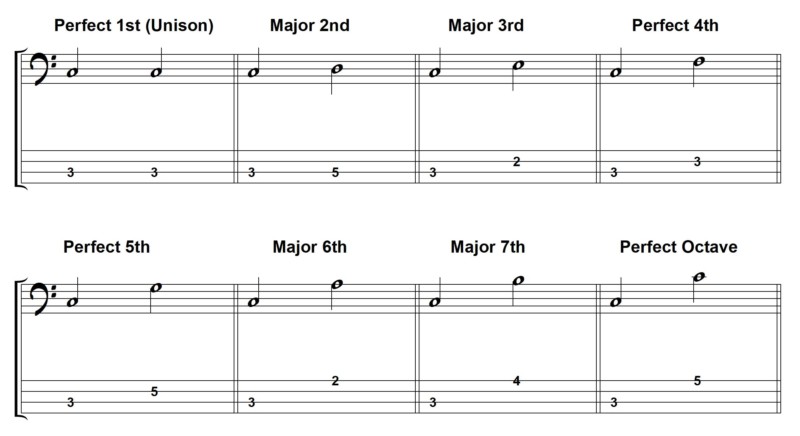
So, to memorize these interval qualities just think of 1 4 and 5 as being perfect. All the rest are major. So just get 1 4 and 5 into your head as important scale degrees when working out the interval qualities.
The Next Step
- Now you have a list of intervals to work on I’d suggest the following:
- Play each interval in isolation. Work up the neck one fret at a time and back.
- See each interval in every bassline you play.
- Learn the Minor, Augmented and Diminished intervals
- Learn intervals both above and below your root note
- Learn the compound intervals (beyond the octave) such as the 9th, 10th, 11th etc.
- Learn to hear and sing each interval in isolation. See video for details
More Resources
To learn more about intervals visit the following Talkingbass pages:
To learn how to recognise the intervals by ear check out the Ear Training For Bass Guitar course HERE!


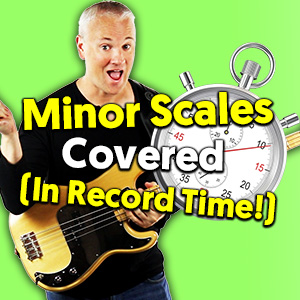


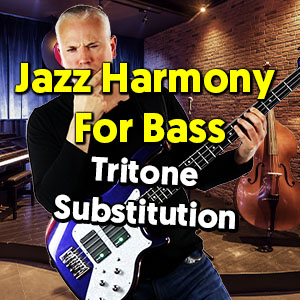





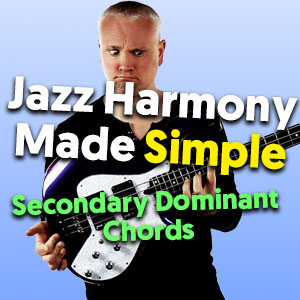
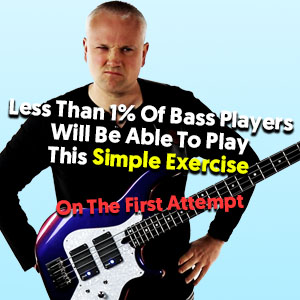
Man, ive been bouncing through your videos for days, and every one is so helpful. You speak to the person, not an audience, and it is very personal, uplifting, and helps truly grasp the nature of the music. I have been playing since i was 7 on various instruments, but you know kids. They just want to play, never learn or follow directions. Well, unfortunately 23 years later you have changed my mind!
I have always found my way around by my ear, but you have just helped unlock massive amounts of new potential, and i thank you for all you do and put out for people like me! People who truly want to be one with their music! Thank you!!
KholdPhuzion
Hi there. Thanks for the Most Useful Music “Theory” . I’m a beginner so I need guides to learn guitar. Your pose is very useful and helpful to me. This can be my basic knowledge and I would like to follow other post in this site as well. By the way, I’m looking for a best one guitar from here http://alphaconsumermusic.com/. I really need suggestions from guitar expert how to choose best one. Please help me. Thank you in advance for your kindness.
Can’t say enough!!!! I’ve been playing bass for a very long time, but never took the time to dig deep into Music Theory. This is just what I’ve been looking for.
Thanks Mark. You are an awesome instructor.
Tank you sir, have been playing for 3 years now, tanks to talking bass, you have taken me deep into music, the level at which i am is due to talking bass. MAY GOD REACHLY BLESSED YOU SIR
Thanks mark, I’ve been intimidated by my bass for a while now but I’m starting to feel like I understand it and music a bit. Your encouragement is priceless.